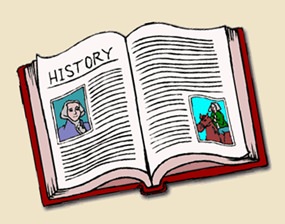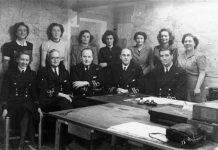Today is Thursday, Dec. 31, the 365th and final day of 2015.
Highlights in history on this date:
1494 – Forces of France’s King Charles VIII enter Rome.
1526 – Croat nobility chooses Habsburg rule and Croatia becomes part of the Habsburg monarchy.
1775 – The British repel an attack by Continental Army generals Richard Montgomery and Benedict Arnold at Quebec. Montgomery is killed.

1799 – The Dutch East India Company’s territories in Indonesia are taken over by the Dutch Administration in Batavia, now Jakarta.
1810 – Russia’s Czar Alexander introduces new tariffs aimed at French goods.
1851 – Austrian Constitution is abolished.
1857 – Britain’s Queen Victoria decides to make Ottawa the capital of Canada.
1879 – U.S. inventor Thomas A. Edison gives first demonstration of his electric incandescent light at Menlo Park, New Jersey.
1919 – Britain, Japan and United States sign an agreement on East Siberia.
1956 – President Sukarno proclaims a state of siege in Sumatra, Indonesia.
1961 – Lebanon’s army prevents coup attempt in Beirut by Syrian Popular Party; the U.S. Marshall Plan expires after distributing more than $12 billion in foreign aid.
1963 – Central African Federation of Rhodesia and Nyasaland is dissolved.
1964 – Indonesia’s President Sukarno threatens to quit the United Nations if Malaysia is given a seat on the U.N. Security Council.
1966 – United States says it will halt bombing of North Vietnam when Hanoi gives assurance that it will discuss peace terms seriously.
1968 – U.N. Security Council censures Israel unanimously for helicopter commando raid on airport at Beirut, Lebanon.
1974 – Private U.S. citizens are allowed to buy and own gold for the first time in more than 40 years.
1978 – Taiwanese diplomats strike their colors for the final time from the embassy flagpole in Washington, marking the end of diplomatic relations with the U.S.
1986 – A fire at the Dupont Plaza Hotel in San Juan, Puerto Rico, kills 97 people and injures 140 others.
1988 – India and Pakistan agree not to attack each others’ nuclear facilities.
1990 – Israeli air force attacks a PLO base near Sidon, Lebanon killing 12 guerrillas belonging to Yasser Arafat’s Al Fatah faction.
1991 – Representatives of North Korea and South Korea agree not to use nuclear weapons.
1994 – A New Year’s Eve assault by Russian forces on Grozny, Chechnya, produces one of the bloodiest days of the war. Both sides claim success.
1998 – Eleven European nations usher in the New Year and the euro.
1999 – Russian President Boris Yeltsin announces his resignation.
2001 – Pakistan arrests the leader and more than two dozen members of Lashkar-e-Taiba, one of two Muslim militant groups that India blamed for an attack on Parliament that killed 14 people.
2003 – The U.S. Centers for Disease Control and Prevention says that an outbreak of influenza has reached epidemic levels in 45 states and has already killed at least 42 children.
2004 – Locked doors at a nightclub in Buenos Aires, Brazil, block or slow the exit of many concertgoers fighting to escape a fire that kills 186 people and injures hundreds.
2005 – British subway workers walk out in a 24-hour strike, disrupting the London Underground as tens of thousands of revelers throng in the capital to celebrate the New Year.
2009 – A U.S. judge dismisses all charges against five Blackwater Worldwide security guards accused of killing unarmed Iraqi civilians in a crowded Baghdad intersection in 2007.
2013 — Three members of a persecuted ethnic minority from China have been released from Guantanamo Bay and sent to the Central European country of Slovakia, resolving a diplomatic dilemma that had kept the Uighurs imprisoned long after a judge had ordered their release.
2014 — Lithuania becomes the 19th country to adopt the euro but the Baltic country’s increasing integration with richer European nations has led to a waive of emigration that is emptying towns and causing worker shortages.
Today’s Birthdays:
Jacques Cartier, French explorer (1491-1557); Henri Matisse, French artist-sculptor (1869-1954); Nathan Milstein, Russian-born violinist (1903-1992); Gottfried August Burger, German poet (1748-1794); Anthony Hopkins, English actor (1937–); Sarah Miles, British actress (1941–); Donna Summer, U.S. singer (1948–2012); Ben Kingsley, British actor (1943–).
Thought For Today:
The past at least is secure — Daniel Webster, American statesman (1782-1862).




